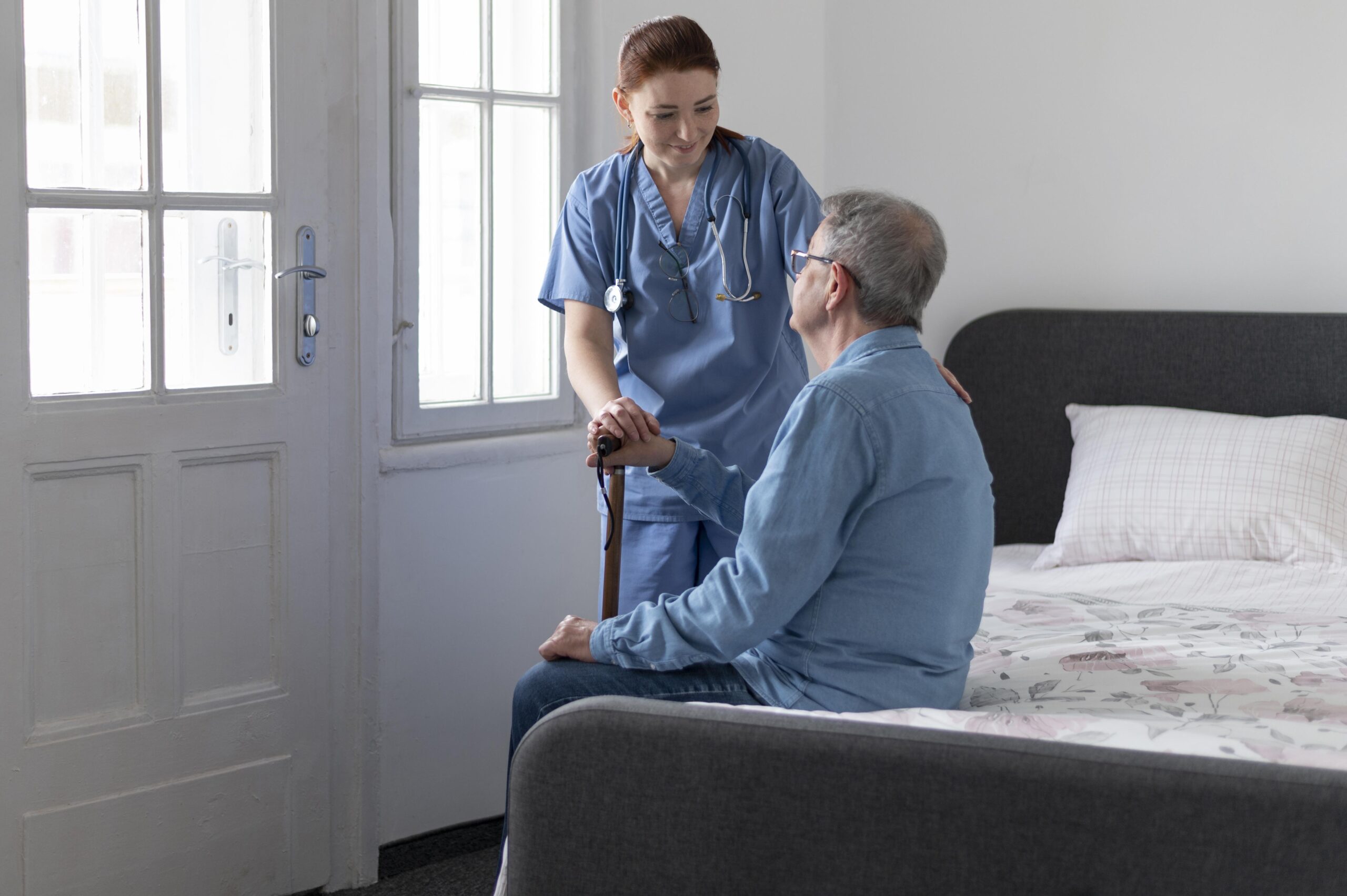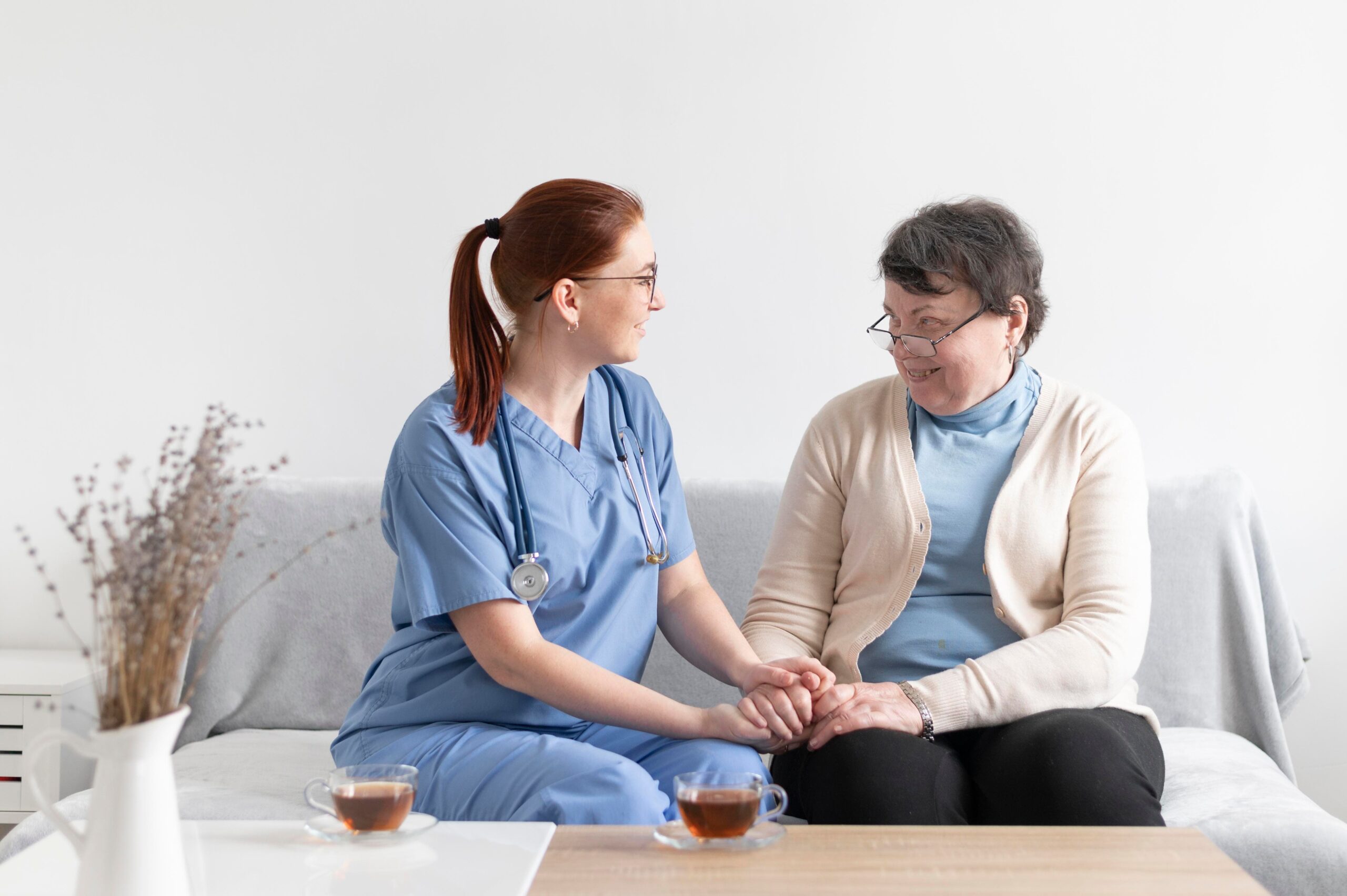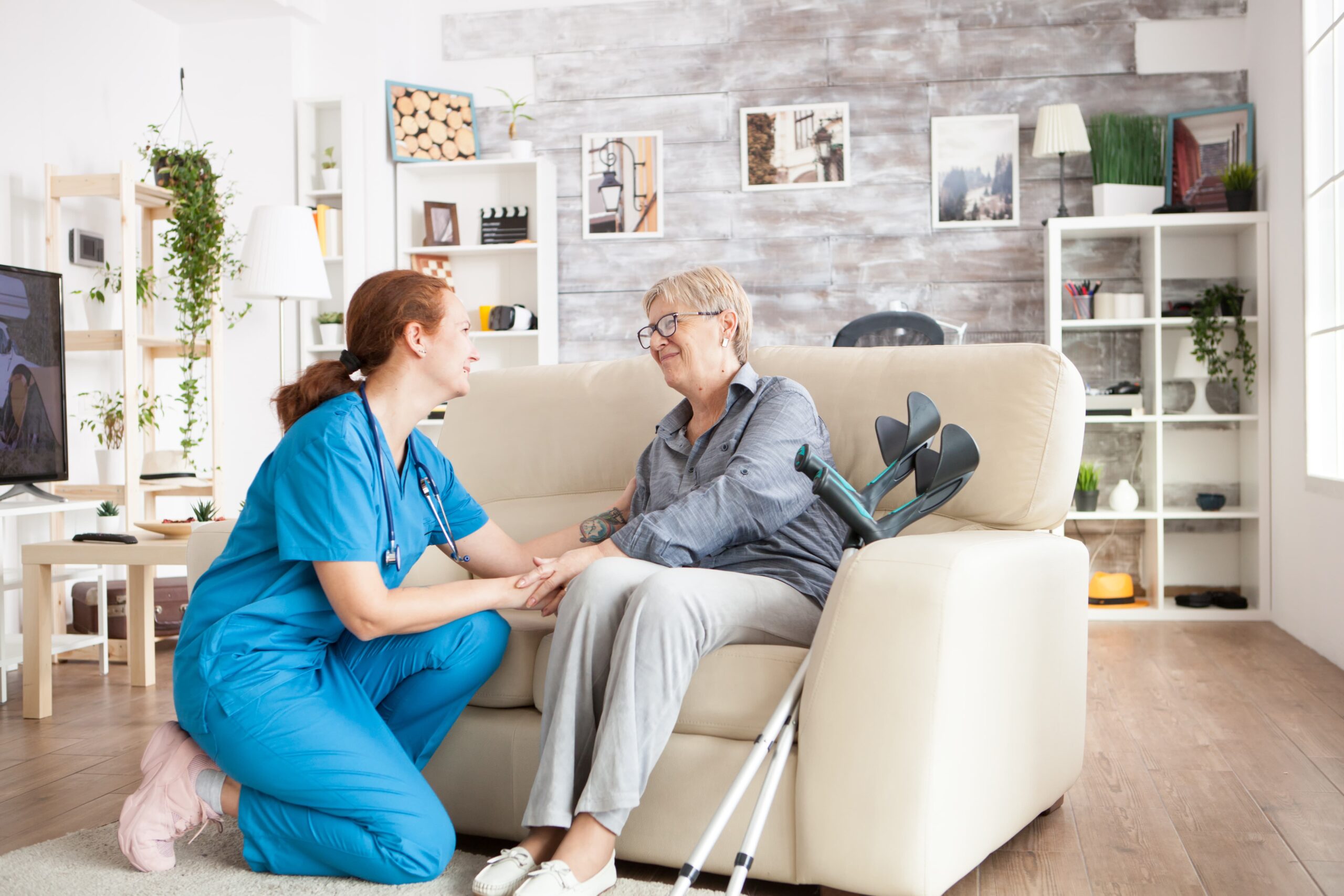Key Points:
- Home health aides play a vital role in fall prevention through providing mobility support, conducting home safety assessments, and offering daily supervision.
- Seniors face a high risk of falls due to aging-related factors; however, personalized in-home care can significantly reduce these risks.
- Hiring a qualified home health aide near you ensures consistent support and peace of mind for families and caregivers.
As loved ones age, one of the most pressing concerns for families is keeping them safe from falls, and for good reason. Falls are the leading cause of injury among seniors and can lead to broken bones, hospitalization, and long-term mobility issues. For many families, the question becomes: How can we keep mom or dad safe at home without constant supervision?
This is where home health aides come in. A trained home health aide provides more than just basic care. They actively work to reduce fall risks, offering personalized support and hands-on help that truly makes a difference. If you’re looking into fall prevention solutions, this guide will walk you through exactly how home health aides help keep seniors steady, safe, and supported.
Why Fall Risks Increase With Age
As people age, natural changes in strength, balance, and vision increase the risk of falling. Chronic conditions like arthritis, diabetes, or Parkinson’s disease, as well as medications that cause dizziness or drowsiness, further compound the issue. Even something as simple as a rug or poor lighting can become a serious hazard.
Unlike younger individuals, seniors who fall often face longer recovery periods, possible surgeries, and a permanent loss of independence.
Recognizing these risks is only the first step. What matters is how they’re addressed in the senior’s daily environment. That’s where the role of a home health aide becomes essential.
 The Role of a Home Health Aide in Fall Prevention
The Role of a Home Health Aide in Fall Prevention
Personalized Daily Assistance
A home health aide provides one-on-one, hands-on care tailored to the needs of each individual senior. This includes help with:
- Getting out of bed or chairs
- Walking from room to room
- Bathing and dressing
- Transferring to and from a wheelchair
These routine tasks may seem simple, but they’re high-risk moments for falls. With a caregiver present to assist and monitor movements, those risks are significantly reduced.
Monitoring Mobility and Balance
Falls often occur when seniors attempt to move independently, especially when their strength or balance is compromised. A home health aide is trained to recognize early signs of instability and provide physical support during high-risk activities.
This kind of mobility support includes:
- Walking alongside the senior for added balance
- Using gait belts or mobility aids correctly
- Reinforcing physical therapy techniques at home
It’s not just about helping the person walk but about helping them walk safely.
Routine Home Safety Checks
A common question caregivers ask is, “Is the home safe enough?” A home health aide is trained to identify home safety hazards that might go unnoticed, such as:
- Loose rugs or uneven flooring
- Cluttered walkways
- Poor lighting in hallways and bathrooms
- Unstable furniture
Once hazards are identified, the aide can recommend modifications or work with family members to address the issues. Small changes like installing grab bars or rearranging furniture can drastically reduce fall risk.
Medication Monitoring and Coordination
Certain medications increase fall risk by causing dizziness, drowsiness, or drops in blood pressure. A home health aide doesn’t prescribe medication, but they do help seniors stay on schedule and observe any side effects that may arise.
They can report symptoms to nurses or family members, helping ensure that a senior’s medications are managed safely and any dangerous patterns are caught early.
How Home Health Aides Support Independence
Many families worry that introducing an aide might make their loved one feel more dependent. But in reality, home health aides promote independence by supporting seniors in safely performing their daily routines.
Instead of removing independence, they provide a safety net. Seniors are more likely to stay active: walking, bathing, preparing light meals, when they know someone is there to help if needed. Maintaining activity is essential to preserving balance and strength, which ultimately prevents falls.
 Finding the Right Fit: Choosing a Home Health Aide
Finding the Right Fit: Choosing a Home Health Aide
Choosing the right aide can make all the difference. When searching for a home health aide near me, consider these factors:
- Training and experience in elder care and fall prevention
- Consistency of caregivers (same person or rotating staff?)
- Flexibility in hours and duties
- Communication with family members and medical professionals
Be sure to ask about background checks, fall prevention training, and any certifications or licensure requirements in your state.
Practical Tips for Families
Even with a home health aide in place, families can play an active role in reducing fall risks. Here are some actionable tips:
- Schedule regular eye exams – Poor vision leads to missteps and falls.
- Keep pathways clear – Avoid clutter and use furniture that doesn’t block movement.
- Install grab bars – This is necessary, especially in bathrooms and near staircases.
- Check lighting – Ensure every room and hallway is well-lit, especially at night.
- Encourage safe footwear – Non-slip soles and supportive shoes make a difference.
- Stay involved – Communicate regularly with the aide and observe any changes in your loved one’s mobility.
A collaborative effort between the family, the senior, and the aide creates a safer environment.
Protect Your Loved One by Hiring a Home Health Aide
Having a home health aide means consistent supervision provided for your loved one in a familiar environment. Unlike periodic visits from healthcare providers, a home health aide is often present daily or for extended hours. This continuity of care allows for better awareness of changes in mobility, mood, or health, all of which can influence fall risk.
Also, seniors often feel more confident and secure knowing someone is there to assist if needed. That confidence can reduce hesitation and fear, which ironically can also lead to falls.
Looking for a compassionate, skilled home health aide in New York City or nearby areas?
Revival Home Health Care provides professional, in-home care services specifically designed to meet the needs of seniors at risk of falling. From mobility support to daily assistance and personalized home safety planning, our team is dedicated to helping seniors stay safe and independent at home.
Whether you’re just starting your search or actively looking for a “home health aide near me,” Revival Home Health Care invites you to explore how our services can support your family’s needs.
Don’t wait for a fall to take action. Contact us today and learn how we can help with expert fall prevention services in New York.


 75 Vanderbilt Ave Staten Island, NY 10304
75 Vanderbilt Ave Staten Island, NY 10304 info@revivalhhc.org
info@revivalhhc.org 718.629.1000
718.629.1000